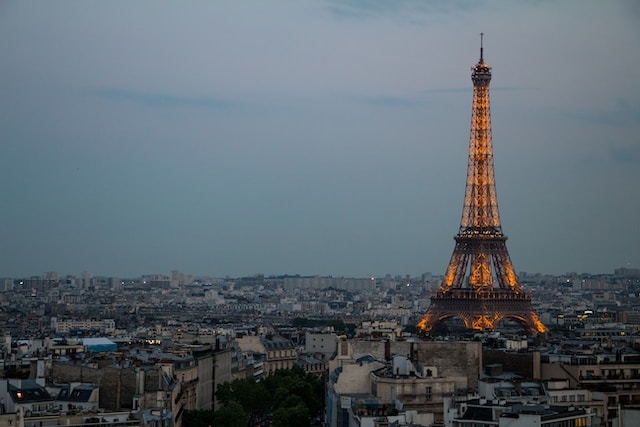

Paris Choose Hydrogen for Olympic Transport
As another Glastonbury is consigned to the history books and with a summer of big events and international travel sprawling ahead of us, it can be all too easy to overlook the environmental impact that lies beneath all this excitement.
Due to construction, energy consumption, and transportation of attendees and participants the impact of big events is considerable, and contributes to major environmental concerns, including climate change and the depletion of natural resources.
Despite the promises made for the 2022 Olympics to rely on renewable energy, the reality was that the majority of venues were built using energy sourced from the Beijing power grid, which predominantly relies on coal for electricity generation. This heavy dependence on coal naturally results in significant CO2 emissions, as well as the release of harmful pollutants like mercury, sulphur, and nitrogen.

The majority of venues for Beijing winter olympics were built using energy sourced from the power grid, which predominantly relies on coal for electricity generation.
Global carbon dioxide emissions from fossil fuels and industry were 37.12 billion metric tons (GtCO₂) in 2021.
So can the Paris Olympics in 2024 do better than the Beijing Olympics? Many believe it’s crucial that they do.
And when it comes to transport emissions a significant positive is that Air Liquide has joined forces with Paris 2024 as an Official Supporter in the field of hydrogen, with the aim of reducing the event’s carbon footprint. As part of this partnership, the company will provide renewable hydrogen to fuel a portion of the vehicles in Paris 2024’s official fleet. This collaboration aligns with Paris 2024’s commitment to hosting environmentally friendly Games and promoting sustainability.
____________________
Related reading content:
Don’t Underestimate The Power of Hydrogen to Disrupt the Auto Industry
____________________
To support the environmental goals of the event, Air Liquide and the Paris 2024 Organising Committee for the Olympic and Paralympic Games have entered a partnership. The objective of this collaboration is to provide hydrogen fuel for the transportation of athletes and officials.
Air Liquide will supply renewable hydrogen to be used in several hundred Toyota Mirai vehicles, which have been designated as the official vehicles of Paris 2024. The renewable hydrogen provided by Air Liquide will be generated through processes such as water electrolysis or the use of biomethane with certified origins.

Air Liquide will supply renewable hydrogen to be used in several hundred Toyota Mirai vehicles, which have been designated as the official vehicles of Paris 2024.
With transport contributing to 24% of global CO2 emissions, addressing the climate emergency demands a diverse set of solutions, including renewable hydrogen. This clean energy source presents significant advantages, such as extended range and quick refuelling, particularly beneficial for heavy-duty and high-demand transportation, including taxis and the vehicles in constant operation within Paris 2024’s official fleet.
This also represents a significant positive hydrogen PR opportunity, as the eyes of the world fall on the Paris Olympics to judge amongst other things their sustainability efforts, so having an official hydrogen-powered transport fleet is excellent news.
____________________
Related reading content:
Hydrogen: The Key To Accelerated Decarbonisation
____________________
Leveraging its position as a global frontrunner in hydrogen production, Air Liquide will utilise its 60 years of expertise and its capabilities in low-carbon and renewable hydrogen production to fulfil the project. The company is actively engaged in launching, piloting, and advancing significant projects worldwide to drive the decarbonisation of both industry and transportation.

Hydrogen, the clean energy source, presents significant advantages, such as extended range and quick refuelling, particularly beneficial for heavy-duty and high-demand transportation, including taxis and the vehicles in constant operation within Paris 2024’s official fleet.
To put that into context and to expedite the progress of hydrogen as a vital component of the energy transition, Air Liquide has made a commitment to develop a total installed electrolysis capacity of 3 gigawatts by 2030.
The Beijing Winter Olympics in 2022 employed a combustion system for its Olympic torch, developed by the China Aerospace Science and Technology Corporation, that was fuelled by eco-friendly hydrogen, and which burnt reliably in all weather conditions.
We predict the Paris Olympics will continue to demonstrate their commitment to hydrogen as a clean energy source and look forward to further announcements in the coming months.
To learn more about HYCAP, click here.